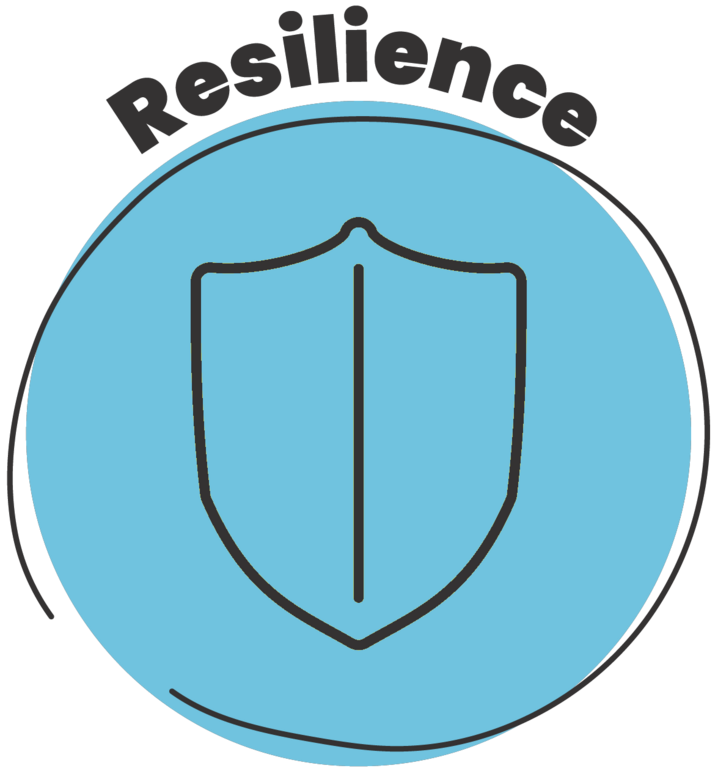by Manjit Shellis, Senior Education Advisor, September 2024
As school leaders, we always look for ways to improve school life for our pupils and staff. Lately, there has been a strong focus on mental health and wellbeing in schools, and it is clear why. Issues like staff burnout, rising child mental health concerns, and anxiety have all been made worse by the pandemic. The Department for Education (DfE) found that over 80% of schools reported an increase in students needing mental health support between 2020 and 2022. This shows how crucial mental health resources are in schools. One game-changing approach is adopting a character strengths framework. This strategy benefits everyone and can completely transform school culture and lives. As an education provider, we are frequently asked by schools, “How do I open up the world to my school, which is a largely monocultural community?” or “How do I inspire and motivate my pupils who come from diverse backgrounds and cultures?” or even “How do I tackle racist bullying in my hyper-diverse school?” All of these questions spur us on to do what we can to support this vital area.
What do we mean by mental health and wellbeing?
Mental health, like physical health, is essential for everyone. It includes our thoughts, feelings, and behaviours, shaping our overall mental state. Good mental health means handling our daily challenges, interacting well with others, making sound decisions, and feeling balanced. It’s not just about avoiding mental illness but also about building self-worth, resilience, and emotional intelligence.
Wellbeing more broadly includes mental and physical health, plus relationships, environment, and personal fulfilment. It’s about overall quality of life. Factors such as relationships, nutrition, exercise, sleep, work-life balance, and self-esteem all play a role in our mental health and wellbeing.
Why character strengths matter
Character strengths are positive traits in our thoughts, feelings, and behaviours that lead to better mental health and enhance wellbeing. Building character strengths is all about discovering what makes you your best self. The Amazing People Schools (APS) strengths framework is based on the VIA (Values in Action) Classification, which identifies 24 universally recognised character strengths. Research shows that these strengths are vital for mental health and wellbeing. People who are aware of and use their character strengths report higher life satisfaction and happiness. We know that developing character strengths leads to: ✅ Better academic performance ✅ Enhanced resilience ✅ Improved relationships Research reveals that adopting a positive psychology approach to focusing on strengths, not weaknesses, encourages a growth mindset, continuous self-improvement, and proactive challenge-handling. Strengths-based interventions reduce depression and anxiety symptoms, boosting overall psychological wellbeing. In schools, students aware of their strengths are more engaged and motivated and perform better academically.




How does teaching character strengths support mental health and wellbeing?
To truly nurture mental wellbeing, students need to develop character strengths that enhance resilience, happiness and their ability to face life’s challenges. This includes strengths such as:
😊 Gratitude: recognising and appreciating the positives improves mood and fosters contentment
😊 Empathy: understanding and sharing feelings reduces loneliness and strengthens bonds
😊 Kindness: acts of kindness build relationships and instil purpose
😊 Optimism: a positive outlook protects against depression and anxiety
😊 Curiosity: encouraging exploration promotes intellectual growth and engagement
😊 Creativity: expressing creatively boosts wellbeing and inspires innovative solutions
😊 Perseverance: teaching persistence builds resilience and a sense of accomplishment
😊 Courage: bravely facing challenges builds confidence and resilience
When these strengths are in play, the brain releases ‘feel-good’ chemicals like dopamine, serotonin and oxytocin. By nurturing these strengths, schools create an environment where students thrive academically and personally, laying a foundation for lifelong mental wellbeing.
The Amazing People Schools Framework
Research suggests that we ALL have character strengths. Recognising and using these strengths helps individuals to unlock their full potential and manage life’s ups and downs productively.
Our framework groups strengths into six core categories: ‘Head’, ‘Heart’, ‘Action’, ‘Community’, ‘Meaning’ and ‘Self-regulation’.
This helps pupils to see how what we think, feel and do is interconnected and how we relate to others as humans. This is underpinned by how we marshal our energies to achieve the outcomes we want in life, including how we manage all those big feelings that accompany all we do. Self-regulation is a crucial part of our wellbeing, and is key to realising our goals, and ultimately our achievements. All strengths are interconnected – and when balanced – provide the bedrock to good mental health, and fundamentally our wellbeing.
You can’t be it if you can’t see it: use role models
You can’t be it if you can’t see it: use role models

Positive role models are also important in educational settings. True to our name, Amazing People Schools uses stories of diverse role models, from historical figures to contemporary heroes, to show the power of character strengths.
From Martin Luther King Jr. to Malala Yousafzai, Ada Lovelace to Marcus Rashford, these individuals demonstrate how ordinary people use their strengths to overcome adversity and make a positive impact.
Role models inspire and motivate students, showing that their goals are attainable and that they can overcome obstacles. This results in a supportive, nurturing school environment, enhancing students’ overall wellbeing, confidence, self-esteem and academic performance.
Measuring character strengths is not easy because they are inherently subjective and context-dependent, making them difficult to quantify with traditional assessment methods. Unlike academic achievements, which are measured through tests and exams, strengths like resilience, empathy, and teamwork vary widely in different situations. However, finding a way to assess these skills is crucial because they play a significant role in a student’s personal development, wellbeing and future success. Strengths are essential for navigating real-world challenges and building meaningful relationships, making their evaluation vital for preparing pupils for life beyond the classroom. Adopting a character strengths approach to mental health and wellbeing can have profound benefits for students, teachers, and the whole school environment. By focusing on positive traits, we can foster a more supportive, engaging, and effective educational experience. Imagine a school where every child is grateful, empathetic, kind, optimistic, curious, creative, self-regulated, perseverant, adaptable, and courageous! This is a school that truly prioritises the mental health and wellbeing of its pupils, preparing them not just for exams, but for life. As school leaders, it is our job to create an environment where everyone can flourish. Embracing character strengths is a powerful step in that direction. Get in touch. Or find out more about our approach to wellbeing here.Measuring the unmeasurable
Are you ready to take the strengths step?
Image attributions
Marcus Rashford: Oleg Bkhambri (Voltmetro), CC BY-SA 4.0, via Wikimedia Commons; Greta Thunberg: Kushal Das, CC BY-SA 4.0, via Wikimedia Commons




